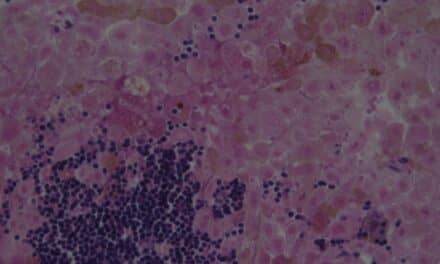Navidea Biopharmaceuticals Inc., a Dublin, Oh, biopharmaceutical company focused on precision diagnostic radiopharmaceuticals, has announced that FDA has accepted the company’s supplemental new drug application (sNDA) and granted priority review for the expanded use of injection with Lymphoseek (technetium 99m tilmanocept), as indicated for sentinel lymph node (SLN) detection in patients with head and neck cancer.
FDA has set a target review date for the Lymphoseek sNDA of June 16, 2014. The agency grants priority review status to drug applications that may offer significant treatment improvements over existing options. Lymphoseek is currently approved for use in lymphatic mapping procedures performed to aid in the diagnostic evaluation of lymph nodes draining a primary tumor in patients with breast cancer and melanoma.
“FDA’s acceptance of the Lymphoseek sNDA filing and the granting of a priority review for this indication highlights the urgent need of these cancer patients, who generally face extensive surgery for a diagnostic evaluation of potential cancer spread and to properly stage their cancer,” said Navidea CEO Mark Pykett, VMD, PhD. “We are encouraged by the agency’s expedited review, which represents another step forward in Navidea’s efforts to develop precision diagnostics that improve the accuracy of diagnosis. If this sNDA is approved, Lymphoseek will be the only FDA-approved diagnostic agent with SLN detection claims.”
The sNDA submission included data from the NEO3-06 Phase 3 study that showed with statistical significance the ability of Lymphoseek to correctly identify patients with pathology-positive lymph nodes compared with multiple-level lymph node dissection and pathology assessment, the current “gold standard.” The Phase 3 NEO3-06 trial was a prospective, open-label, multicenter, within-patient study. It was designed to identify sentinel lymph nodes and determine the false negative rate (FNR) associated with Lymphoseek-identified SLNs relative to the pathological status of non-SLNs in head and neck and intraoral squamous cell carcinoma. FNR is the rate of occurrence of negative test results in subjects known to have the disease for which the individual is being tested.
The primary endpoint for the NEO3-06 trial was based on the number of subjects with pathology-positive lymph nodes (lymph nodes found to harbor cancer) following a multiple-level lymph node dissection. The trial required a minimum of 38 subjects whose lymph nodes contained pathology-confirmed disease.
Of the more than 80 subjects enrolled in the NEO3-06 trial, 39 subjects were determined to have pathology-positive lymph nodes. Results demonstrated that Lymphoseek correctly identified 38 of these 39 patients, for an overall FNR of 2.56%, which met the predefined statistical threshold. These findings indicate that Lymphoseek accurately identified SLNs in these trial subjects, and is likely to be predictive of overall node pathology status.
Moreover, multiple-level nodal dissection of patients in the trial with cancer-positive lymph nodes led to an average removal of 38 lymph nodes per patient, whereas Lymphoseek on average led to the removal of approximately 4 lymph nodes, representing a substantial reduction in potential morbidity for patients with head and neck cancer undergoing single lymph node biopsy.
Navidea anticipates continuing development of Lymphoseek into other solid tumor areas that may include head and neck cancers, prostate cancer, thyroid cancer, lung/bronchus cancers, colorectal cancer, and others.
For more information, visit Navidea Biopharmaceuticals Inc.




